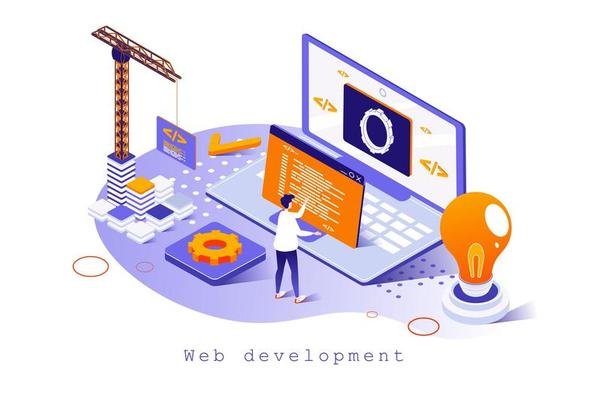In today’s fast-paced digital landscape, businesses are increasingly relying on mobile applications development services to enhance customer engagement, streamline operations, and boost revenue. With mobile usage surpassing desktop usage worldwide, the demand for innovative and high-performing apps is at an all-time high. Whether for Android, iOS, or cross-platform solutions, mobile apps have become a crucial component of a brand’s digital strategy.
This article explores the evolving trends, challenges, and opportunities in mobile application development while shedding light on the best practices that businesses should adopt to stay competitive.
The Evolution of Mobile Application Development
The journey of mobile applications has been remarkable. From the early days of simple utility apps to today’s AI-driven, cloud-integrated, and augmented reality-powered applications, the industry has transformed significantly. Several factors have contributed to this evolution, including the growing demand for mobile applications development services:
- Technological Advancements: The rise of AI, blockchain, and IoT has revolutionized app functionalities.
- User Expectations: Consumers demand seamless experiences, personalized content, and real-time interactions.
- Cross-Platform Development: Frameworks like Flutter and React Native have made it easier to develop apps for multiple platforms efficiently.
- Security Concerns: As cyber threats evolve, mobile security has become a critical focus for developers and businesses alike.
Latest Trends in Mobile Application Development Services
1. Artificial Intelligence and Machine Learning
AI and ML are reshaping mobile app experiences by enabling predictive analytics, voice recognition, and personalized recommendations. Features like AI-powered chatbots, real-time language translation, and automated customer support are now integral to modern apps.
2. 5G Connectivity
The rollout of 5G networks is set to enhance mobile app performance with ultra-fast speeds and low latency. This enables the development of more sophisticated applications, including AR/VR, high-definition video streaming, and real-time cloud gaming.
3. Augmented Reality (AR) and Virtual Reality (VR)
Industries like e-commerce, gaming, and healthcare are leveraging AR and VR to create immersive user experiences. Apps such as Pokémon GO and IKEA Place are excellent examples of how AR enhances engagement and usability.
4. Blockchain Integration
With increasing concerns over data security and privacy, blockchain technology is being adopted for decentralized applications (DApps). This ensures greater transparency, security, and reliability in transactions and data management.
5. Progressive Web Apps (PWAs)
PWAs offer the best of both worlds: the functionality of a native app with the accessibility of a website. They are lightweight, fast-loading, and don’t require installation, making them a popular choice for businesses seeking cost-effective mobile solutions.
Challenges in Mobile Application Development
Despite its growth, mobile app development comes with its own set of challenges:
- Platform Fragmentation: Developing apps that work seamlessly across various devices and operating systems can be complex.
- Security Risks: With the rise in cyber threats, ensuring data protection and compliance with regulations like GDPR is crucial.
- User Retention: With millions of apps available, retaining users and ensuring continuous engagement is a major hurdle.
- Performance Optimization: Apps must be optimized for speed, battery consumption, and storage efficiency to enhance user experience.
Best Practices for Successful Mobile App Development
To overcome challenges and build high-performing apps, developers and businesses should adopt the following best practices:
- User-Centered Design: Prioritize UX/UI design to create intuitive and visually appealing interfaces.
- Agile Development: Implement agile methodologies to ensure flexibility and efficiency in the development process.
- Testing and Quality Assurance: Conduct rigorous testing to eliminate bugs, improve performance, and enhance security.
- Data Security Measures: Integrate encryption, two-factor authentication, and other security protocols to safeguard user data.
- Regular Updates and Maintenance: Continuously update the app based on user feedback and technological advancements.
The Future of Mobile Applications Development Services
The future of mobile app development is filled with exciting possibilities. As technology continues to evolve, we can expect:
- More Intelligent Apps: AI-driven automation will make apps smarter and more efficient.
- Enhanced Personalization: Machine learning algorithms will allow apps to deliver highly personalized user experiences.
- Voice and Gesture Control Integration: Hands-free interaction will become more prevalent, improving accessibility and convenience.
- Eco-Friendly and Sustainable Apps: Developers will focus on creating energy-efficient apps that align with sustainability goals.
Conclusion
The world of mobile applications development services is dynamic and constantly evolving. Businesses that stay ahead of trends, embrace new technologies, and prioritize user experience will thrive in this competitive landscape. By leveraging innovations such as AI, 5G, and blockchain, developers can create apps that not only meet user demands but also drive business growth.For companies looking to build a high-performing app, investing in mobile app development is no longer an option—it’s a necessity. With the right strategies and a forward-thinking approach, the potential for success in this industry is limitless.
For more interesting blogs click here.
















Leave a Reply